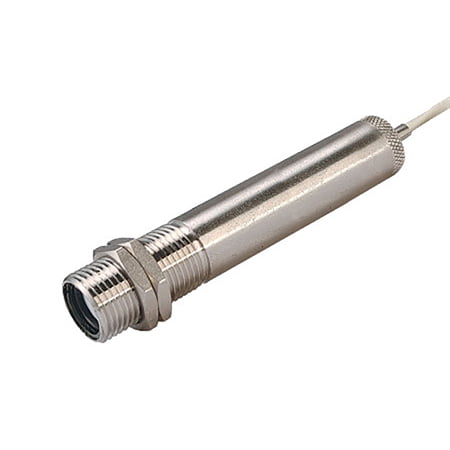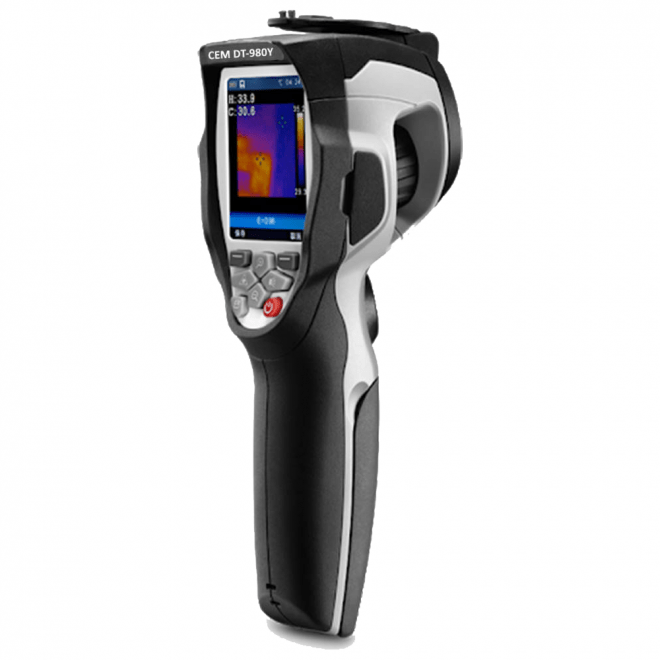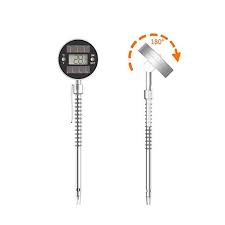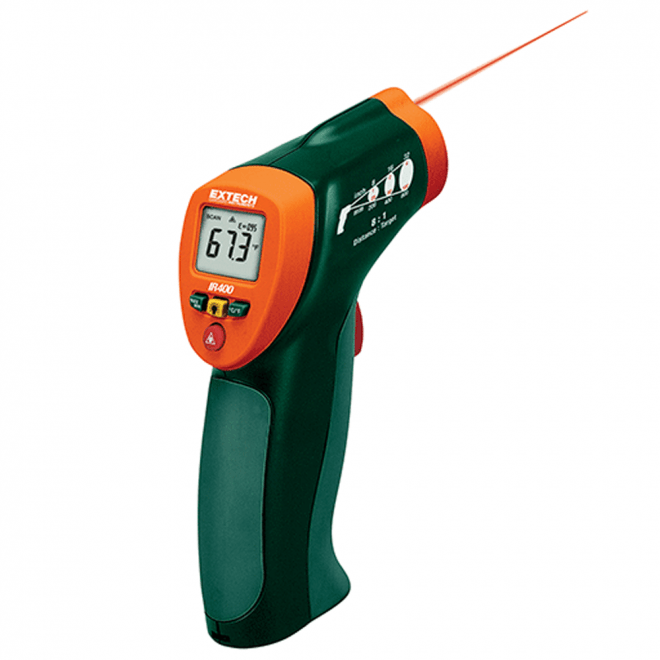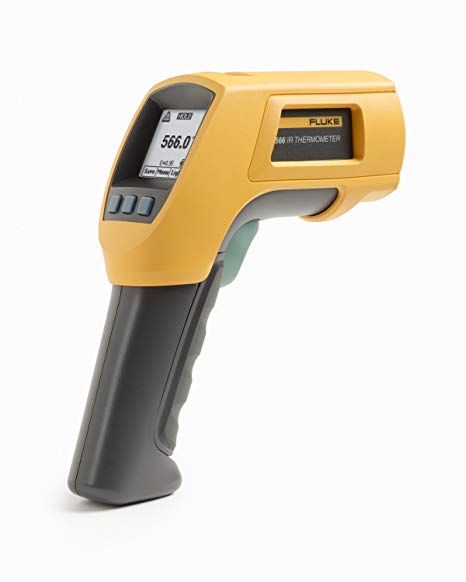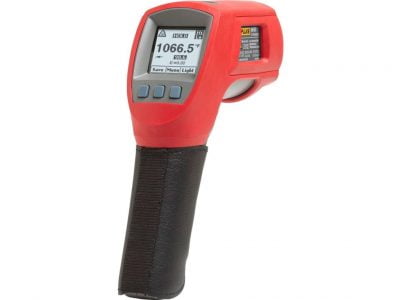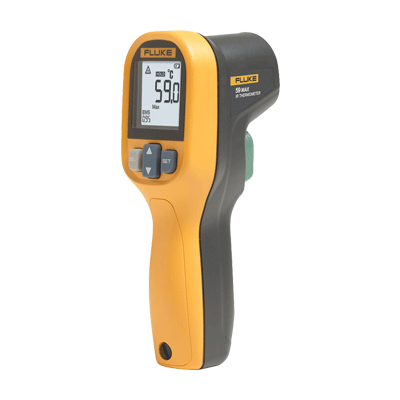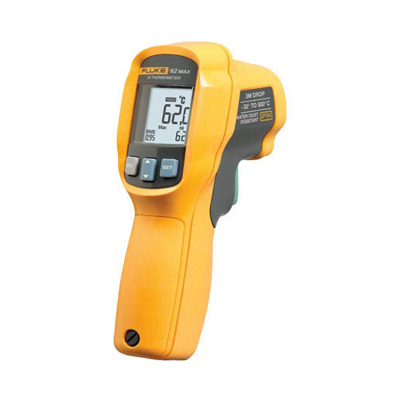-
₹17,500.00
Ace Non-Contact Temperature Transmitter
Ace Non-Contact Temperature Transmitter measures the temperature of surfaces in hazardous areas without contact and provides a direct 0-5v output. Ace Temperature Transmitter is certified to standards. The electronic driver of the sensor to gain an appropriate sensitivity range for the required operation.
Applications: Radiation transmitted, Gas Analyzers flame monitor, Obstacles Detection, industrial safety devices -
₹130,391.11
CEM DT 980Y Body Thermal Imager (COVID-19)
CEM DT 980Y Body Thermal Imager is used to measure human body temperature with a response time of 20 ms. This body thermal image automatically tracks the highest/lowest temperatures and easily finds the abnormal temperature in the detection area. The external large display terminals make on-site monitoring much easier. The data can also be transferred online to the free Thermview+ App and use powerful analysis software.
Applications: Malls, residentials, IT Offices, School, Colleges, Airports, etc
-
₹89,741.53
DIAS DT4L Non Contact IR Pyrometer
DIAS DT4L Non Contact IR Pyrometer are specifically designed for industrial purpose. The devices are suitable for temperature measurement from –40 °C to 1000 °C on many different nonmetallic or coated metallic surfaces. The solid body allows usage even under rough environmental conditions.
Applications: Paper and packaging industry, Kiln engineering, Glass and ceramics industry, Food industry, Chemical industry
-
₹4,292.74
Elitech WT-5 Pen Type Solar Energy Thermometer
Elitech WT-5 Pen Type Solar Energy Thermometer is best suited to get accurate measurements of hot and cold beverages like coffee, milk, etc. This Cooking Thermometer can also measure food when it is boiling, heating or cooling, that suits for any home or professional kitchen.
Application: BBQ and meat cooking, Jam making, Brewing, Winemaking, Cake making, Bread making, Fudge making, Chocolate making, Refrigeration, Laboratory use.
-
₹10,346.24
Extech IR267 Mini InfraRed Thermometer
Extech IR267 Mini Infrared Thermometer measures up to 1112ºF (600ºC) with an inherent laser pointer to recognize target territory and enhance the point. This mini infrared thermometer has a provision of K type thermocouple that helps for high-temperature estimations up to 1832°F (1000°C). The built-in temperature sensor additionally measures Air Temperature. Flexible emissivity include considers a higher exactness when measuring temperature on different surfaces
Applications: Manufacturing industries, Thermal plants, etc -
₹11,162.79
Extech IR400 Mini IR Thermometer
Extech IR400 Mini IR Thermometer equipped for estimations up to 630-Degrees F (332-Degrees C) with the inherent laser pointer that distinguishes the target region and enhances the point. Backlighting illuminates display for taking estimations around evening time or in territories with low foundation light levels. Settled 0.95 emissivity covers 90-percent of surface applications.
Applications: Manufacturing industries, IC engines, thermal plants, etc -
₹63,000.00 – ₹81,304.00
Fluke 566 and 568 Infrared Thermometer
Fluke 566 and 568 Infrared Thermometer is a two-in-one infrared and contact thermometers with an innovative dot matrix display. The infrared Thermometer has a straightforward user interface and soft-key menus, using Fluke infrared thermometer even complex measurements are made easy.
Applications:Heating and air conditioning, Industrial/Electrical, Food Safety, Agriculture
-
₹260,932.10
Fluke 568 Ex Intrinsically Safe Infrared Thermometer
Fluke 568 Ex Intrinsically Safe Infrared Thermometer, is designed for operation in potentially explosive areas of Zones 2 and 1 that makes even complex measurements easy. This Fluke Infrared Thermometer features Quick navigation and adjustable emissivity, save data, turn on and off alarms.
Applications: HVAC, Machine Buildings, Labs and Research, Industries. -
₹119,873.22
Fluke 572-2 High Temperature Infrared Thermometer
Fluke 572-2 High Temperature Infrared Thermometer has the largest temperature range and the greatest distance-to-spot ratio of any of Fluke’s IR thermometers. The dual-laser sighting system clearly shows the diameter of the area being measured for high accuracy in your readings.
Applications: Petrochemical, metal refining, and smelting, power utility, cement, and glass.
-
₹6,446.00
Fluke 59 Max Infrared Thermometer
Fluke 59 MAX Infrared Thermometer delivers precise responsive measurements and economical instrument. Fluke 59 ir thermometer includes 8:1 distance to spot ratio and exact single laser focusing for precise and repeatable estimations.
Applications: HVAC, Ceramic Industry, Glass Industry, Metal Industry, Paper and bundling industry, Kiln designing, Food Industry, Chemical Industry, Automotive, Electrical, etc. -
₹5,314.00
Fluke 59 Mini Infrared Thermometer
Fluke 59 Mini Infrared Thermometer is the perfect solution with a small size and big capabilities. This fluke IR Thermometer has the high laser precision targeting with 2% basic accuracy that enables professionals to analyze heating and ventilation problems and also monitors the temperature of electrical motors and panels without contact.
Applications: Industries, Ducts, Chemical Reactors, engines, Transport…Etc
-
₹10,349.00
Fluke 62 Max Infrared Thermometer
Fluke 62 Max Infrared Thermometer is a specialists in measurement tools. Simple and easy to use. This IR thermometer has IP54 making it water resistant. It roughed surface helps the instrument to work even after falling from a 3 meter height.
Applications: Glass Industry, Ceramic Industry, Metal Industry, Paper and bundling industry, Kiln designing, Food Industry, Chemical Industry. Automotive, HVAC, Electrical etc.
Translate

